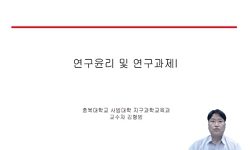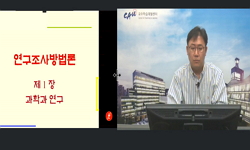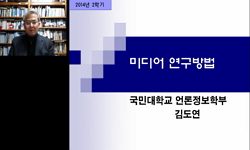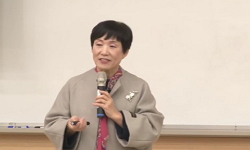Purpose: This study aimed to examine the following overarching issues: the current status of research and publication ethics training conducted in Korean academic organizations and what needs to be done to reinforce research and publication ethics tra...
http://chineseinput.net/에서 pinyin(병음)방식으로 중국어를 변환할 수 있습니다.
변환된 중국어를 복사하여 사용하시면 됩니다.
- 中文 을 입력하시려면 zhongwen을 입력하시고 space를누르시면됩니다.
- 北京 을 입력하시려면 beijing을 입력하시고 space를 누르시면 됩니다.


Current status and demand for educational activities on publication ethics by academic organizations in Korea: a descriptive study
한글로보기https://www.riss.kr/link?id=A108473762
- 저자
- 발행기관
- 학술지명
- 권호사항
-
발행연도
2023
-
작성언어
English
- 주제어
-
등재정보
KCI등재,SCOPUS,ESCI
-
자료형태
학술저널
-
수록면
64-70(7쪽)
- DOI식별코드
- 제공처
-
0
상세조회 -
0
다운로드
부가정보
다국어 초록 (Multilingual Abstract)
Purpose: This study aimed to examine the following overarching issues: the current status of research and publication ethics training conducted in Korean academic organizations and what needs to be done to reinforce research and publication ethics training.
Methods: A survey with 12 items was examined in a pilot survey, followed by a main survey that was distributed to 2,487 academic organizations. A second survey, which contained six additional questions, was dispatched to the same subjects. The results of each survey were analyzed by descriptive statistical analysis, content analysis, and comparative analysis.
Results: More than half of the academic organizations provided research and publication ethics training programs, with humanities and social sciences organizations giving more training than the others (χ 2 = 11.190, df = 2, P = 0.004). The results showed that research and publication ethics training was held mostly once and less than an hour per year, mainly in a lecture format. No significant difference was found in the training content among academic fields. The academic organizations preferred case-based discussion training methods and wanted expert instructors who could give tailored training with examples.
Conclusion: A systematic training program that can develop ethics instructors tailored to specific academic fields and financial support from academic organizations can help scholarly editors resolve the apparent gap between the real and the ideal in ethics training, and ultimately to achieve the competency needed to train their own experts.
동일학술지(권/호) 다른 논문
-
- 한국과학학술지편집인협의회
- Jeong-Wook Seo
- 2023
- KCI등재,SCOPUS,ESCI
-
- 한국과학학술지편집인협의회
- Kim, Eungi
- 2023
- KCI등재,SCOPUS,ESCI
-
- 한국과학학술지편집인협의회
- Sang-Jun Kim
- 2023
- KCI등재,SCOPUS,ESCI
-
Can an artificial intelligence chatbot be the author of a scholarly article?
- 한국과학학술지편집인협의회
- 이주연
- 2023
- KCI등재,SCOPUS,ESCI





 KCI
KCI






